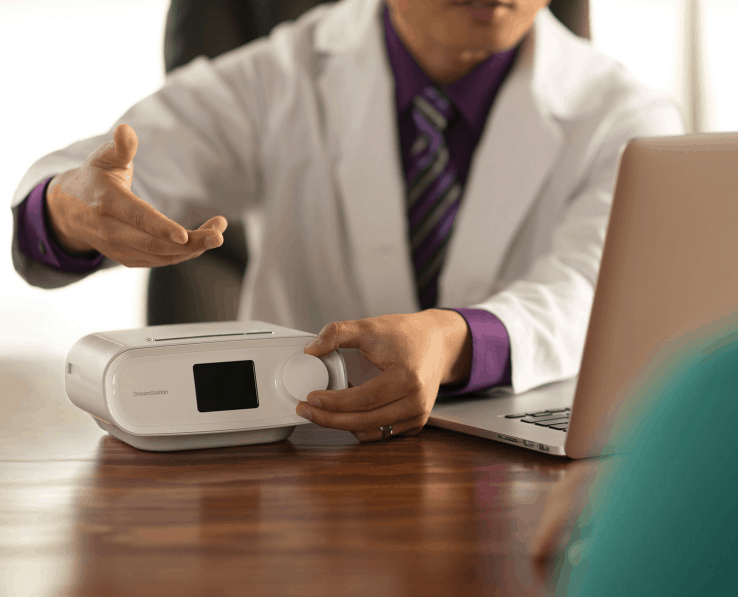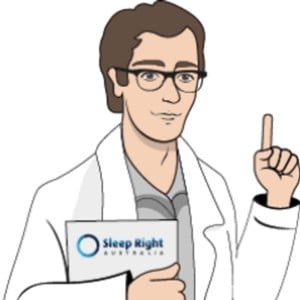As time has gone by with our role, we come across more and more people who have used CPAP in the past that have either stopped or are finding the therapy really tricky to use. There are a few factors that can affect people’s therapy after time:
- The equipment they started with is either damaged or no longer suits them
A person who averages 8 hours a night of sleep, will use their equipment for over 2900 hours every year. The mask is exposed to various elements including: oils on the skin, high pressure from the machine and moisture from the humidifier so it is inevitable that damage will occur.
As a result of this process, headgear will stretch and mask cushions will start to leak. When a leak occurs, CPAP therapy gets very loud, annoying and difficult – nearly impossible.
Patient’s may also lose/gain weight which can change the shape of their face. What was the right size 12 months ago, may be different to now. If you are struggling with noisy equipment, Click here for some tips and tricks on how to get quieter therapy.
- A patient’s initial trial was poor or only one type of mask was trialed
It is not uncommon to speak to people who have tried CPAP once, hated it and committed to never using it again.
A trial can be affected by many things such as:
- Other health conditions
- Not understanding the therapy
- Poor assistance by the people helping them
- Lack of support
- Poor standard of equipment used during the trial
A very common thing we see is patients who have only ever tried Full Face Masks (FFM). In the initial periods of CPAP use, a FFM will provide conditions similar to “normal breathing”. However we have found that even patients who would deem themselves as “mouth breathers” are often well suited to nasal masks. When talking with new patients, we ask “Have you ever tried a nasal mask?” and often get responses such as “No, I am a mouth breather” and “So and so who I was working with before told me only a full face mask will work”.
We are big believers in getting all CPAP users to try a nasal mask. There are fewer leak related issues while using a nasal mask and there is the added benefit of having less on the head. The majority of people who I can get to try a nasal mask instead of a full face, will often find it much more comfortable and that alone can become a game changer for their CPAP therapy.
- Attitude towards therapy
Patient attitude toward therapy matters. There are some people who simply don’t want to use it. These patients are particularly tough. There are some who enter with a level of distrust or uncertainty. A combined effort from GP/Specialist/us and other CPAP users can often help these people commit.
Reassurance is a good thing with CPAP
Many people are using their therapy not knowing whether or not it is working properly. Some people will use their machine for the appropriate period but still have an elevated Apnoea Hypopnea Index (AHI), thus not achieving their goal of treating their sleep apnea.
The more modern Auto CPAP machines are doing a good job, however, it is still important that you know what is going on and that you check your data from time to time. We find that whether it is a reassurance or a tweak to settings, it goes a long way to help people on the journey to prolonged CPAP use.

Expectation Setting with CPAP therapy
CPAP can make extraordinary, life changing differences to people. For others, there may only be a 10% change that occurs.
CPAP users talk to each other and sometimes if one user who has experienced a huge change talks to another user who isn’t feeling as many benefits, the second user can feel like the therapy is not working well for them.
It is important for users to have realistic expectations on what can be achieved from using CPAP. Somebody with bad, chronic sleep apnea who is falling asleep in the morning while eating their breakfast has more scope to notice improvement than somebody with mild sleep apnea, who notices they feel a little bit tired in the afternoon.
These lesser improvements are absolutely still important, however it is essential for people to have a clear expectation of what is available to them as a result of treating their condition.
Brand differences
Different brands/types of mask/machines all have different nuances and it can make a significant difference. Typically we use ResMed CPAP equipment, however we have access to all of the CPAP brands. There is a difference in machine technology, mask materials/design and software aligned to the CPAP therapy. Remote monitoring software and support level varies between the brands also.
Cost of therapy
The cost of therapy has always been a sticking point. With increased competition within the industry and new brands coming into the market, the price of therapy is on a downward trend. Most companies, including us, are now providing payment plans to assist with the cost of therapy.
If a patient is battling with CPAP, we are keen to talk to them
There is a lot we can do to help people with CPAP therapy. The technical aspect is one thing however the reassurance/encouragement/education is another.
We also have a CPAP Support Group on Facebook where CPAP users can talk to other CPAP users. This group has been a huge success with over 650 users. We are here to help.






I have a Philips dream machine and I hate it wake up with anxiety shaking and sore neck can I try a nasal mask
Adele, CPAP can take some getting used too. A nasal mask could be worth a go. Happy to talk you through it, we offer free online face to face discussions. https://sleepright.com.au/cpap-review/online-cpap-equipment-review/